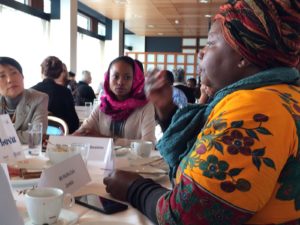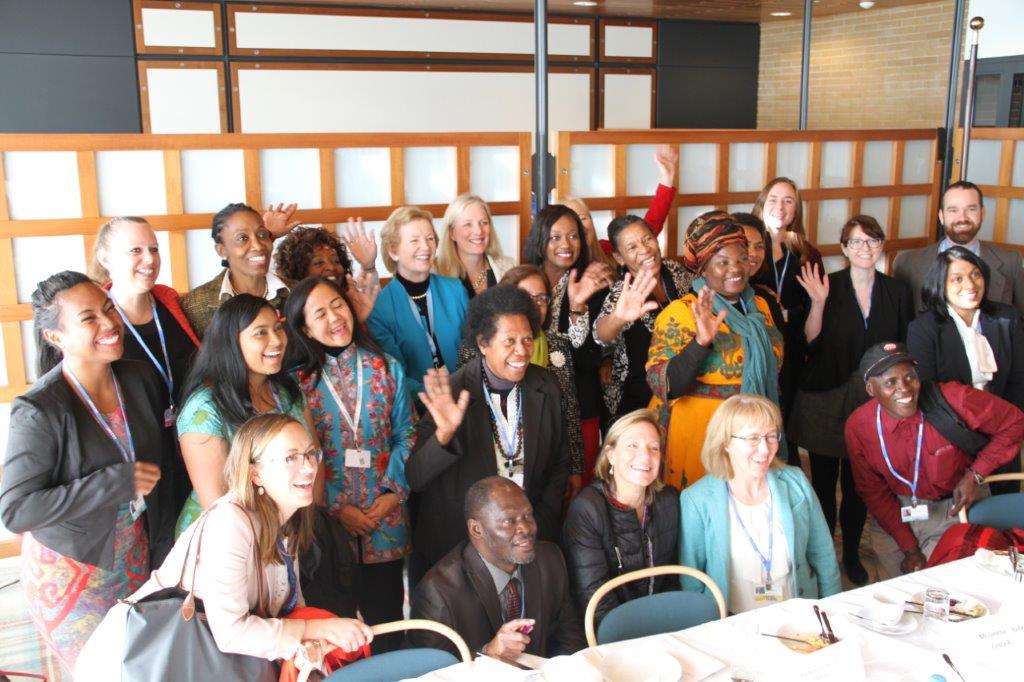Today, 14 November is the official Gender Day at COP23. As part of the Foundation’s engagement at COP23, we co-hosted, with COP Presidents, Fiji, a Talanoa which focused on enabling grassroots and indigenous women’s participation in gender responsive climate action. Over 40 guests gathered as the sun rose on Gender Day to listen to and learn from each others lived experience of engaging in climate action.
The Talanoa, which creates an environment for people to share commonalities and purpose, facilitated grassroots participants and representatives of governments to meet and discuss how to over come the barriers to women’s participation in climate action.
 Caption; Mailes Zulu Muke from SEPA Zambia discussed the barriers faced by her community in accessing climate finance while Naoko Ishii CEO of the GEF and Hindou Ibrahim, Co-Chair of the Indigenous People’s Caucus listen during the Talanoa to celebrate grassroots and indigenous women’s participation in gender responsive climate action.
Caption; Mailes Zulu Muke from SEPA Zambia discussed the barriers faced by her community in accessing climate finance while Naoko Ishii CEO of the GEF and Hindou Ibrahim, Co-Chair of the Indigenous People’s Caucus listen during the Talanoa to celebrate grassroots and indigenous women’s participation in gender responsive climate action.
Solutions to overcome the barriers were discussed in learning circles and relayed to the plenary by the Chairs of the Learning Circles. In order to achieve meaningful participation in climate policy decision making women require;
- Financing – there is currently a lack of resources going to women’s empowerment activities
- Access to markets so that they can be actors in their own development and economic empowerment
- Greater representation in decision making fora (this can be achieved through quotas)
- Spaces, such as the Talanoa, to share their understandings and traditional knowledge with people in positions of power
- Support and training to improve their ability to articulate their expertise to decision makers.
Gender Day at COP 23 highlights how gender responsive climate policy and action can provide economic benefits to communities and create opportunities for raising ambition under national climate plans, while transforming lives, particularly of women and girls.
ENDS


